Results
-
£134.99
Marche au Supplice - Hector Berlioz
Hector Berlioz (1803-1869) once remarked: "My life is a novel that greatly interests me." Experiences in his personal life had a great influence on his compositions. Symphonie Fantastique, written in 1830, is also autobiographical: he subtitled the work Episode in the Life of an Artist. The symphony echoes his feelings for an actress. The Marche au Supplice (march into torture) he described as: "The artist dreams he has killed his beloved, that he has been sentenced to death and is being led to the scaffold. The procession moves to the notes of a march that is now sombre and turbulent, now radiant and stately, and in which boisterous outbursts suddenly dissolve intothe heavy sound of marching feet."
Estimated dispatch 7-14 working days
-
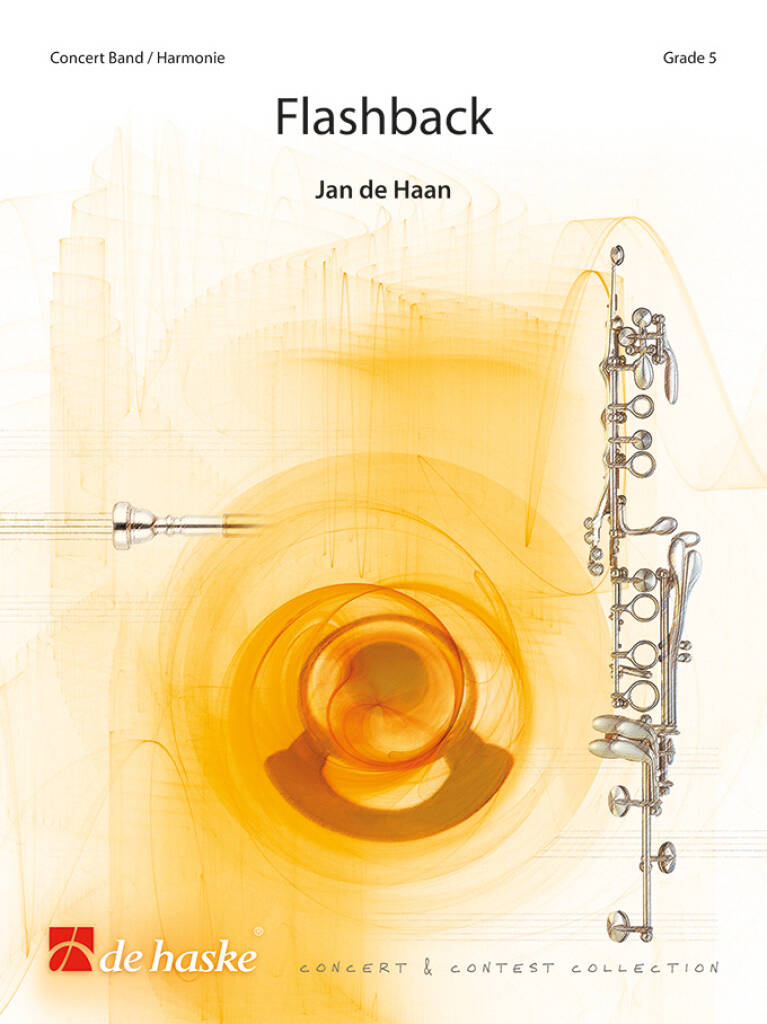 £189.99
£189.99Flashback - Jan de Haan
A flashback is an interesting psychological phenomenon: a seemingly random trigger can bring back long-forgotten memories from the subconscious mind. The composer underwent a similar experience before writing this piece. He was asked to write a piece for The National Youth Fanfare Band in the Netherlands, one which he heard perform many years ago. All of a sudden he remembered Deep Harmony, a piece frequently programmed back then. He used his own flashback-experience as an inspiration to weave an old English hymn into his new composition, much like a musical flashback. The right idea at the right moment, as this piece will prove!
Estimated dispatch 7-14 working days
-
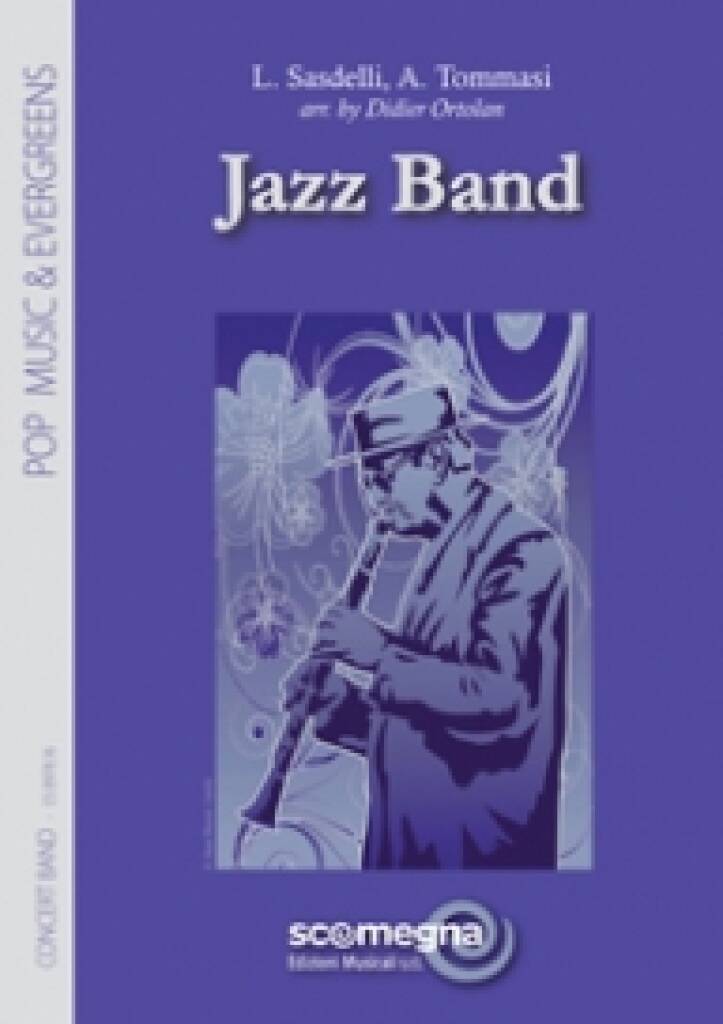 £59.30
£59.30Jazz Band - L. Sasdelli
We have included this famous piece, transcribed by Didier Ortolan for clarinet and band, as a tribute to Hengel Gualdi, who died in 2005. Born in 1924, in Correggio (Reggio Emilia), he was one of Italy's most important jazz musicians. He was held in high esteem in America, where he worked with some of the greatest musicians (Count Basie, Gerry Mulligan etc.) and played with Louis Armstrong and Lionel Hampton. In Italy he worked with Pupi Avati on his soundtracks.
Estimated dispatch 7-14 working days
-
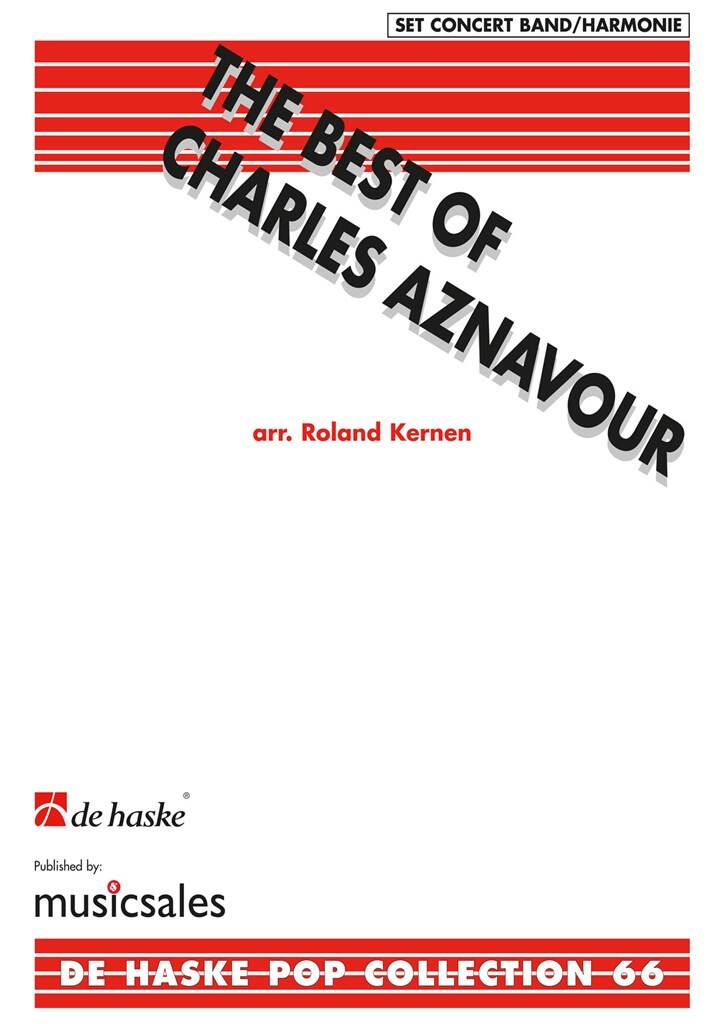 £122.50
£122.50The Best of Charles Aznavour
Charles Aznavour, the son of Armenian immigrants, was born in 1924, in Paris. He finally launched his singing career in France with great effort; despite his lack of star looks and less than remarkable voice. However, he had two things going for him:powerful on-stage charisma and great willpower. It took him about twenty years to reach the top but when he did, his determination certainly paid off. He became a star singer/songwriter in France and his chansons were embraced throughout the rest ofthe world as well. The typical French atmosphere that pervades his music can be clearly experienced in this medley for concert band.
Estimated dispatch 7-14 working days
-
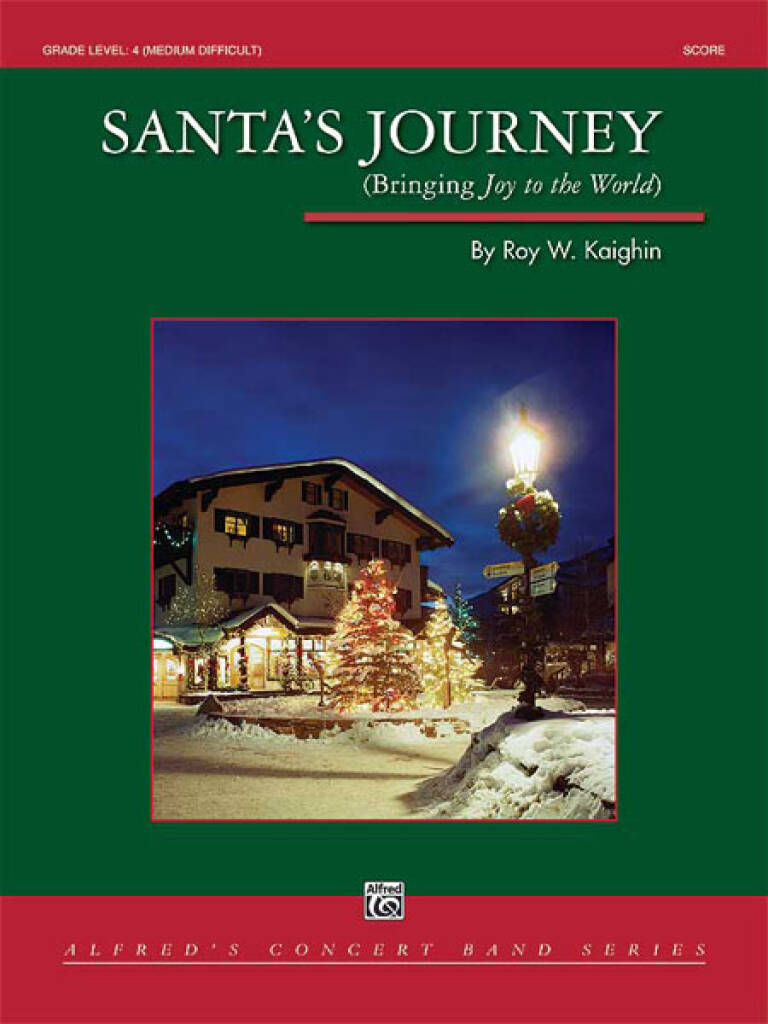 £77.50
£77.50Santa's Journey (Bringing "Joy to the World") - Roy W. Kaighin
As Santa starts his journey, bringing "Joy to the World" by delivering presents to children and adults, he sets off on his majestic sleigh driven by his reindeer. A few elves have snuck into the sleigh to help. With a whoosh, he flies across the sky and over the snowy mountains. The music is in continuous motion, just like Santa's sleigh, as he has many presents to deliver before morning. The quiet moments in the music depict Santa's arrival in small villages, away from the hustle and bustle of the big cities, touching the hearts of people everywhere. During his journey, Santa discovers the elves who have apparently lost some of the presents. Santa offers a gentle reprimandbefore the presents are eventually found by Elfie, the youngest Elf. After all the presents have been delivered, Santa heads back home as he calls out, "I'll be back next Christmas!" (4:15)
Estimated dispatch 7-14 working days
-
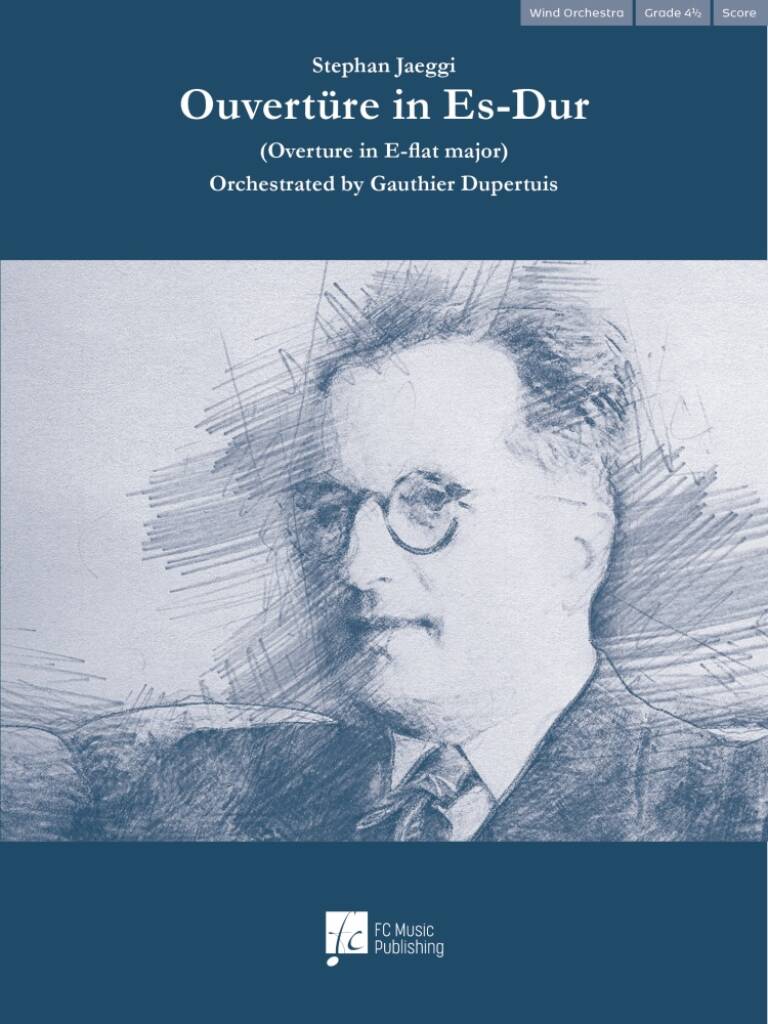 £122.00
£122.00Ouvertre in Es-Dur - Stephan Jaeggi
As part of the year 2023, dedicated to Swiss composers, the Swiss Wind Band Association has commissioned Gauthier Dupertuis to write a new orchestration of the Overture in E-flat major by Stephan Jaeggi. Indeed, an update of the instrumentation was necessary for the interpretation of this work with modern orchestras.Therefore, the orchestration that Gauthier Dupertuis proposes and which he wanted to be faithful to the original while meeting current standards, will allow today's orchestras to performthis piece of classical-romantic inspiration.Stephan Jaeggi was a Swiss composer and conductor who was born into a large family in Fulenbach (Canton of Solothurn) in 1903. He began playing the clarinet at the age of 13, then studied music at the Basel Conservatory and attended his military training with the Swiss Army Band. Thereafter, he became the conductor of several wind orchestras. In this role, and also that of a composer, Stephan Jaeggi went on to achieve great success. His early death in 1957 put a premature end to Stephan Jaeggi's creative life. All the more reason why his work lives on with unbroken power to this day.
Estimated dispatch 7-14 working days
-
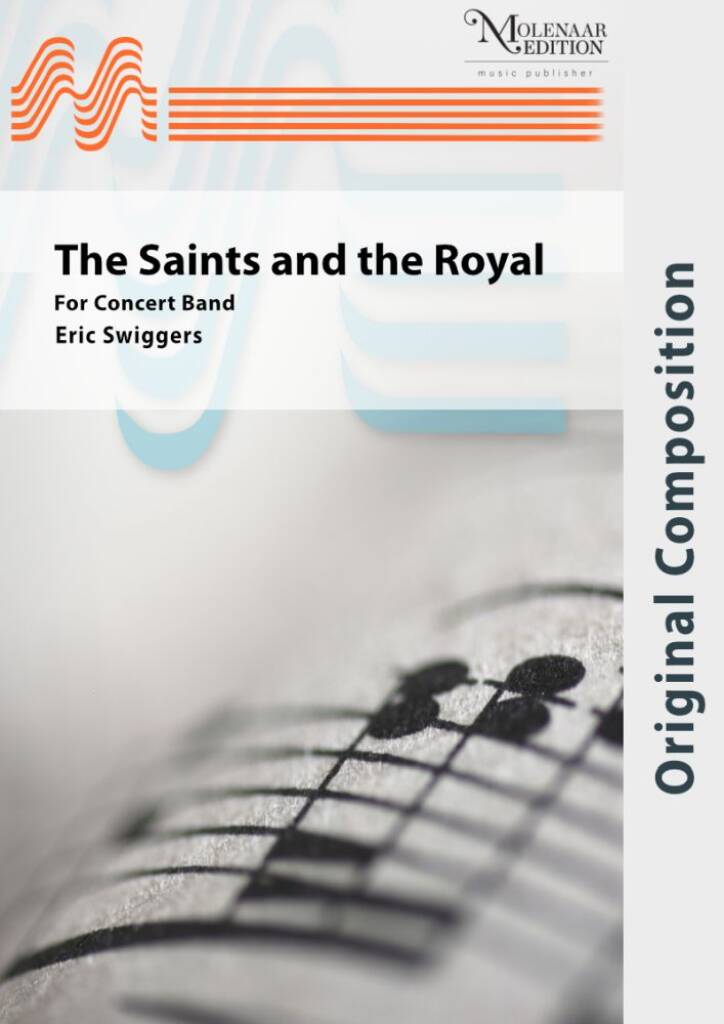 £138.00
£138.00The Saints And the Royal - Eric Swiggers
The Saints and the Royal was composed on behalf of Royal brass band St. Willibrord Heeswijk on the occasion of its 200th anniversary in 2023.When the marching band was founded in 1823, it was given the name "Harmonie Sint Cecilia," referring to Saint Cecilia, the patron saint of music. Around 1904, the name was changed to 'Kerkelijke fanfare Willibrord', strongly emphasizing the connection with the church in Heeswijk, of which Saint Willibrord is the patron saint. In 1973, at its 150th anniversary, the band received the predicate 'royal'. From that time on one speaks of the Royal brass band Saint Willibrord.The composition musically depicts both Saints Saint Cecilia and Saint Willibrord and the jubilee royal brass band. Although one of the oldest musical societies in the Netherlands, this fanfare is alive and kicking and will celebrate its 200th anniversary in 2023. The composition therefore opens festively and energetically. The alto saxophone plays a recitative, the Gregorian "Cantantibus organis Caecilia virgo in corde suo soli domino decantabat" from the vespers of the feast day of Saint Caecilia, the patron saint of music. This is taken over by the full wood and soft brass group. After a brief, playful interlude, this chant is played by the full orchestra, like an organ, larded with circumambulations.St. Willibord was born in England but made the crossing to the Netherlands in 690 to preach the gospel as a missionary. This was far from harmless and he faced frequent uprisings. After his death he was buried in Echternach in Luxembourg. In this place he is commemorated to this day with the annual "Spring Procession" or "Dance Procession". This procession of Echternach went as follows until 1947: 3 steps forward, 2 steps backward. Hence we hear this procession back in a 5/8 measure: 3 + 2.After this procession, the Gregorian vesper of Sint Caecilia sounds one more time, leading the composition to a reprise of the opening: The jubilee Royal Fanfare Sint Willibord Heeswijk.
Estimated dispatch 7-14 working days
-
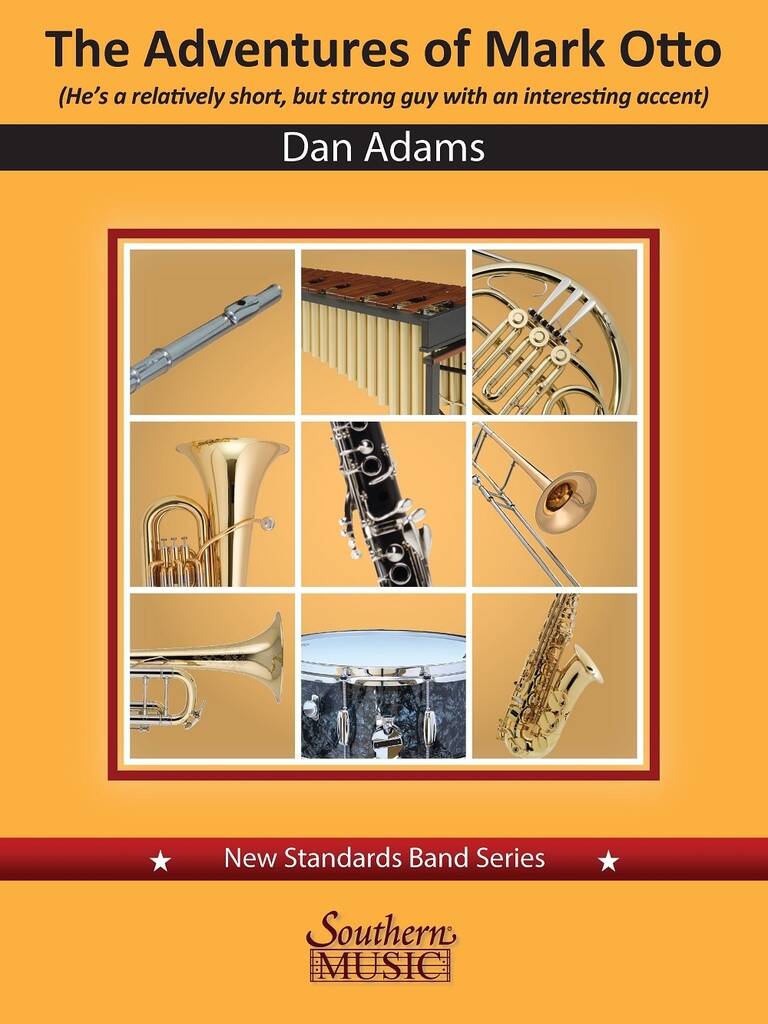 £47.50
£47.50The Adventures of Mark Otto - Dan Adams
Mark is a relatively short, but strong guy with an interesting accent. He gives emphasis to everything he does. He often stands out in a crowd, sometimes even wearing a cap to get noticed. Your students will never forget this humorous, yet effective, lesson in marcato playing.
Estimated dispatch 7-14 working days
-
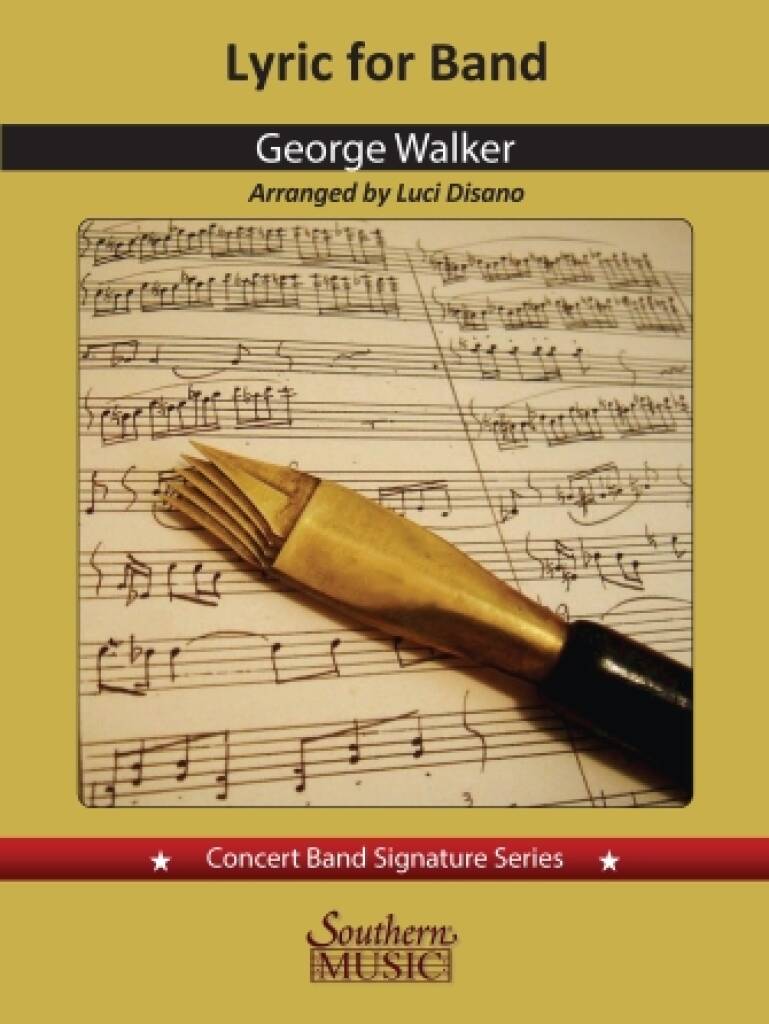 £72.99
£72.99Lyric for Band - George Walker
In 1946, George Walker was still doing graduate work at the Curtis institute when he composed Lyric for Strings, which would prove over the coming decades to become one of the most performed and enduring string orchestra works of the 20th Century. This first-ever edition for symphonic wind band was arranged by Dr. Luci Disano and premiered by The President's Own United States Marine Band on August 24, 2022. George Walker (June 27, 1922 - August 23, 2018) began his groundbreaking career as a young piano virtuoso and was admitted to Oberlin College on a scholarship following his first public recital at the age of 14. Graduating with the highest honors in his Conservatory class, he was admitted to the Curtis Institute of Music, becoming the first black graduate of this renowned music school. His works demonstrate a wide range of artistic excellence in genres ranging from instrumental and vocal solos and chamber music to compositions for orchestra and other large ensembles. He is the first black composer to be awarded the Pulitzer Prize.
Estimated dispatch 7-14 working days
-
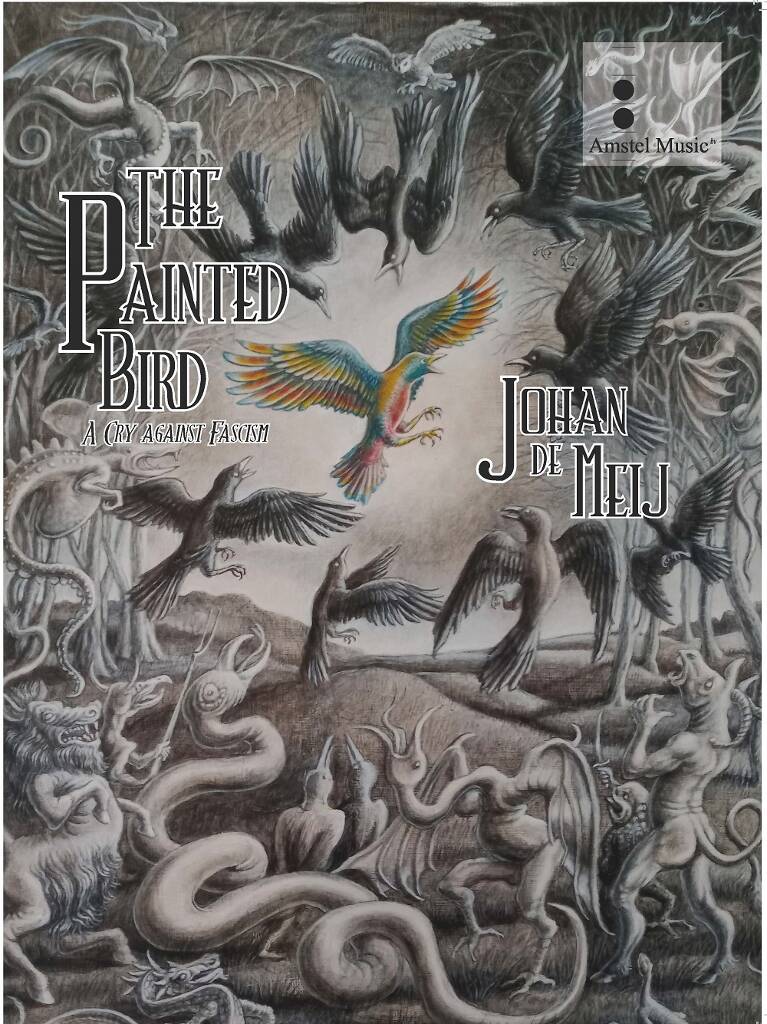 £183.99
£183.99The Painted Bird - Johan de Meij
The Painted Bird, the controversial novel by Jerzy Kosinski (1933-1991), tells the story of a Jewish boy during World War II. For his safety, the child was sent to the Polish countryside by his parents. The title refers to a barbaric tradition among Polish farmers. The wings of a captured bird were painted in bright colors, after which the animal was released. Almost immediately, the bird was attacked and pecked to death by its peers. The boy underwent the same fate. Wherever he wandered, the local rural people cruelly mistreated him because of his distinctly different appearance. However, he survives the horrors and is reunited with his parents after the war. To escape the yoke of the Soviet occupation in his country, the Polish-Jewish Kosinski emigrated with counterfeit papers to the United States in 1957, where he became an American citizen in 1965. His landmark novel The Painted Bird was translated into thirty languages and sold millions of copies. Plagued by illness and accusations of betraying his country and plagiarism the writer ended his life in 1991.
Estimated dispatch 7-14 working days
